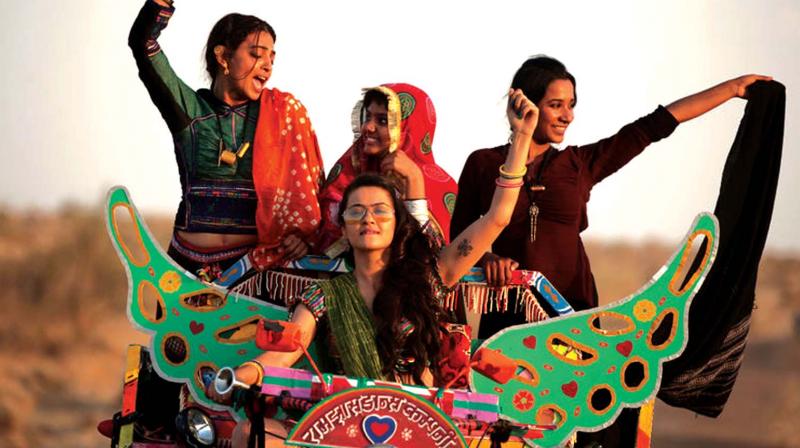Sex and the village
That was the topic of Linaa Yadav's Parched, being screened at the IFFK. She discusses the film as well as her new international project.

In about four hours, Linaa Yadav has to start a journey. But minutes before midnight and fighting a cold, she obliges for an interview, on the same day her film Parched is to be screened at the International Film Festival of Kerala.
Unfortunately, she says, she couldn’t make it to Thiruvananthapuram for the fest. But she has come to Kerala often. The year she made Parched had in fact begun in the backwaters of Kerala, a new year’s eve on a Kuttanad houseboat.
Besides, Linaa doesn’t believe in those kinds of differences, that a region or a religion could bring. There are larger issues at hand, like the ones she had dug out of villages and put into Parched – that of child marriage and domestic abuse and more. The film had landed her in trouble, not for the issues it portrayed but for parts of the content placed out of context.
“The idea of Parched had begun in a conversation with actor Tannishtha Chatterjee. We were exploring some themes, we wanted to work together,” Linaa says.
Tannishtha, Radhika Apte, Lehar Khan and Surween Chawla play the four women around whom the story revolves. “I wanted to make sex and the village like there is Sex and the city. Women talking about and discussing sex. I found that women in the village would sit together and talk of sex, and they are much more unfiltered and honest about it than women in the city.”
That was the beginning. Then there was a lot of travelling, sometimes by herself, sometimes with Tannisththa. The idea grew more serious with time and talk. When Linaa went back to Mumbai to write the script, she realised she was not just writing someone else’s story. This was hers too.
“Because the same things happen in Mumbai, they are just more hidden.” It didn’t stop there either. Linaa sent her script off to friends across the world and everyone was talking about someone to whom the same things had happened.
“It is a very universal subject and it was the right time to make a film about this,” Linaa knew. Only the language made it Indian, the problem was everywhere.
Parched had a release before and this would be the first time it is played at a festival in India. There was an appeal to stop the release of the film. A petitioner from Gujarat had taken offence at the way a community was portrayed in the film.
But then the film had already run its life by then, released and gone, and much acclaimed. Linaa had got threats. But that too stopped once she reported it to the police and the media came out with the story. That wasn’t the end of her troubles, though.
Certain parts of the film appeared online, inviting comments of all sorts. “The sex scenes,” she specifies. “It was very unfortunate that it was taken out of context and played.” Radhika Apte had earlier been offended when she was asked about the ‘leaked nude scene’.
But those are old stories now and Linaa has begun work on her new international project – a film set in Iran. The producer Carol Polakoff had seen Parched, liked it and called her to make this film about a gay love story. An internet search would give a quote Linaa never said, that Parched was her ticket to Hollywood.
“You know how it is,” she says simply, tired of the many incorrect stories. There have once been tales of her first two films being inspirations of others. ‘Shabd’ has been said to be similar to the Malayalam film ‘Rachana’. Linaa says, “I have never seen that film and have no clue of that.” Her second film Teen Patti has been compared to the English film 21. “The film was inspired by a real incident at MIT. And our film was shooting before 21 ever released.”
All that talk and Linaa still appears cool. Growing up an army child, she has learned lots — travelled all over the country, never feeling rooted to one place. She cannot understand it when people ask her if she is a Hindu or a Muslim. “I don’t notice those things. There are people I have known for years and don’t know the surnames of. That is the beauty of filmmaking. It crosses all boundaries.”

